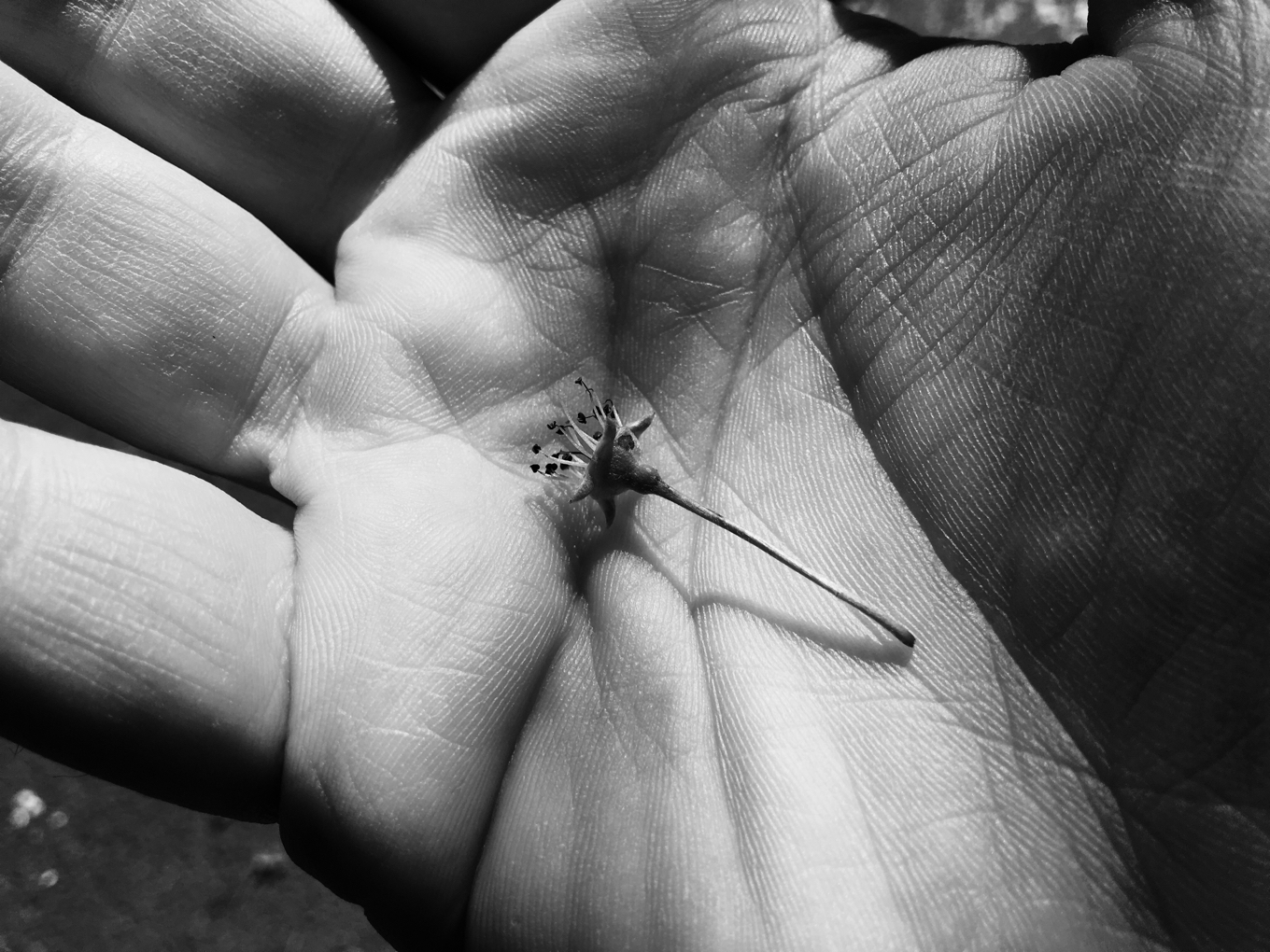“Rock it,” C says. “Rock the baby to sleep.” This time the “baby” is a tiny seedling he’s placed in the palm of my hand. Now he cradles my hand in his, swaying it back and forth and humming Rock-a-bye Baby.
On love
C loves babies. He talks to them as though they can understand what he’s saying. “How old are you, baby?” “Did you cry when you were born, baby?” He doesn’t seem concerned that they don’t answer. For their part, babies seem intrigued by this large-but-not-full-sized human with giant eyes and so many questions.
C has his own small collection of babies. At the moment, it includes four stuffed dogs and a doll with blue hair that he found in the playground. The first of his babies was a flop-eared stuffed dog he named “Pokelyn.” The others he named Chipwich, Doglass, and Lucy. (I don’t think the doll has a name.) He takes one of his babies with him to school every day.
A small stuffed dog sticks its head out of a backpack
On empathy
If he can’t find one of his babies, C becomes frantic. He blames himself; he says he’s a “bad parent” for being careless. He worries that the missing baby is “not in this world anymore.” He imagines they must be scared and lonely. He hugs and kisses them when they’re found.
A small boy is hugged by his male therapist
On connectedness
C has a very special friendship with Aaron, one of his therapists. Unfortunately, however, Aaron is moving away. C wrote Aaron a farewell note. It read:
Der Aron I love you. Il miss you for along time. Love C
If you’re unfamiliar with autism, I’d ask you to keep these anecdotes about my son in mind the next time you hear someone—whether they’re a celebrity, well-regarded researcher, or just a friend or family member—say that autistic people lack empathy, that they’re not connected to others, that they’re incapable of true love.
Remember, also, that people experience and display emotions in different ways, and that doesn’t mean their emotions are any less authentic or meaningful than your own. Look for the connections. You’ll find them.



